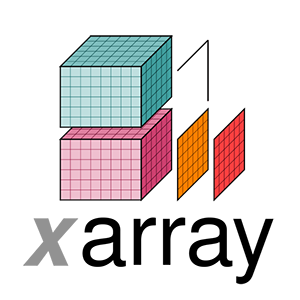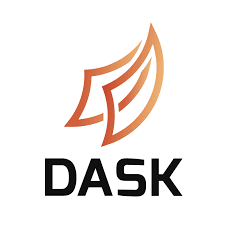This repository contains materials for the tutorial session Pangeo: Scalable Geoscience Tools in Python — Xarray, Dask, and Jupyter that will be held as a workshop with the C3DIS 2019 conference.
Tutorial material adapated from https://github.com/pangeo-data/pangeo-tutorial-agu-2018.
- About Pangeo: Pangeo is a community effort for big data in the geosciences using Python. A key component of the Pangeo effort is the improved integration of Xarray and Dask to enable analysis of very large datasets.
- About xarray: xarray is an open source project and Python package that aims to bring the labeled data power of pandas to the physical sciences, by providing N-dimensional variants of the core pandas data structures.
- About Dask: Dask is a flexible parallel computing library for analytic computing.
- About Jupyter: Project Jupyter exists to develop open-source software, open-standards, and services for interactive computing across dozens of programming languages. The Jupyter Notebook is an open-source web application that allows you to create and share documents that contain live code, equations, visualizations and narrative text. Uses include: data cleaning and transformation, numerical simulation, statistical modeling, data visualization, machine learning, and much more.
At its core, Pangeo is a community effort built around open-source software. As such, the credit for the developments of the software described here belongs with the community that created it.
Elements of this tutorial were taken from the xarray, Dask, Cartopy, Holoviews, and Geoviews documentation. Some pieces of text in the xarray portion of the tutorial were adapted from Hoyer and Hamman (2016).
Pangeo is supported by the National Science Foundation (NSF) via the EarthCube Program and the National Aeronautics and Space Administration via the ACCESS Program. NCAR is separately supported by the National Science Foundation (NSF).
This work is licensed under a Creative Commons Attribution 4.0 International License.





